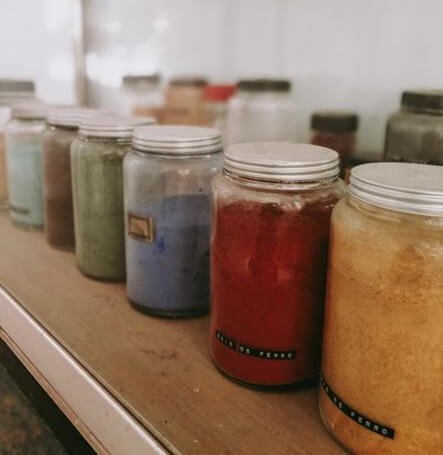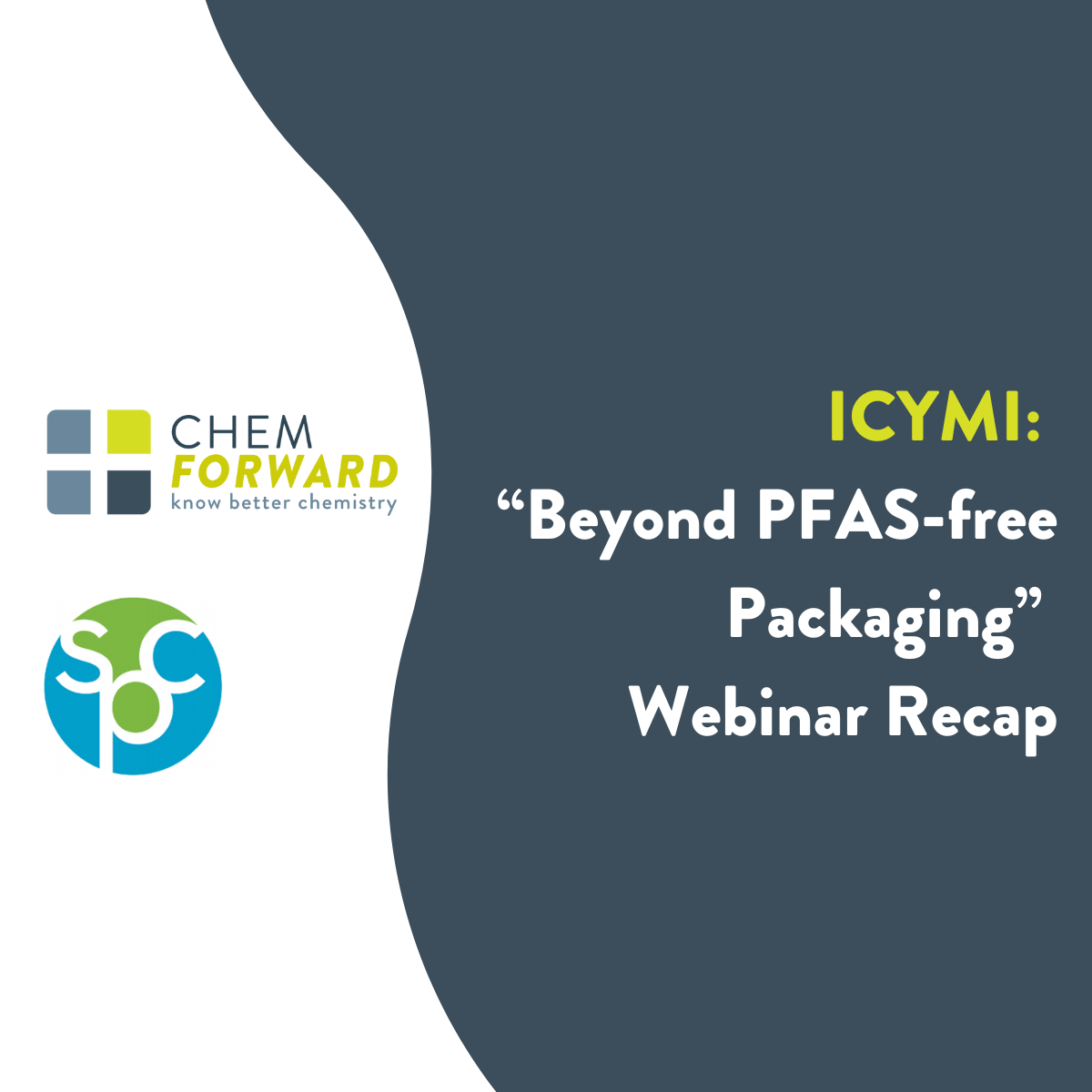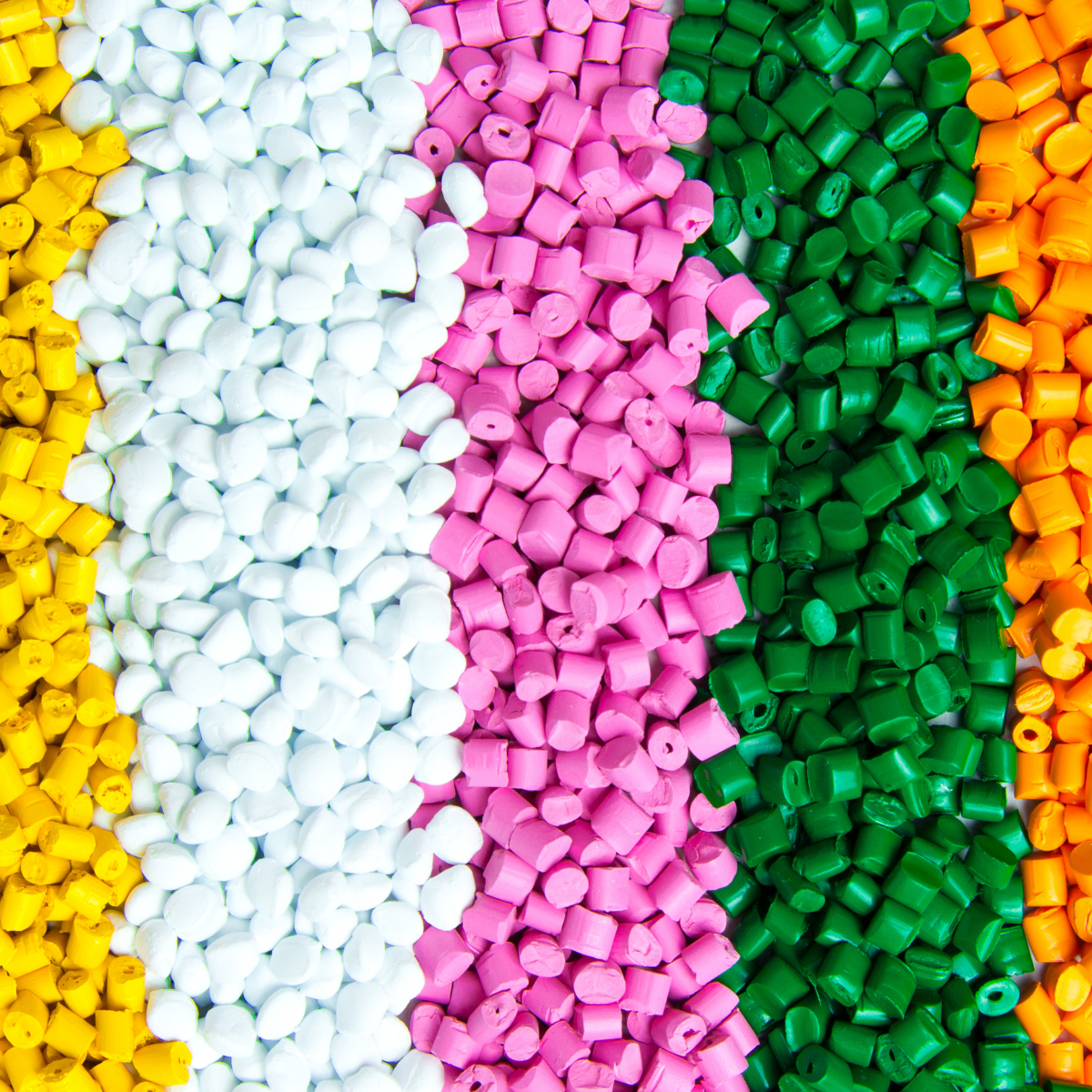
A Colorful PCB Problem
Though the U.S. EPA banned polychlorinated biphenyls (PCBs) in 1979 for hundreds of applications, exposure persists. In addition to communities burdened with persistent contamination, PCBs still linger in the food chain and in many old buildings, including schools.

Introducing CleanPackage: Supporting Safe + Circular Materials for Packaging
As packaging design advances to support recyclability and compostability, safe building blocks can be hard to pinpoint and hazardous chemicals can be difficult to avoid. To help companies tackle this challenge, The Sustainable Packaging Coalition (SPC) is excited to launch CleanPackage, a database of verified safer alternative packaging materials.

ChemFORWARD Shares Safe + Circular Packaging Materials Pilot Results

ICYMI: “Beyond PFAS-free Packaging” Webinar Recap
The Sustainable Packaging Coalition (SPC) and ChemFORWARD recently shared the initial results from the Safe + Circular Materials Collaborative. This year-long supply chain collaboration explored the challenges of circular packaging and solutions to accelerate the transition to safer alternatives.

ChemFORWARD’s Plastic Additives Alternatives Finder Expands to Include Trade Name Materials - still freely available!
Since its launch in April, ChemFORWARD’s free Plastic Additive Optimization Tool has helped hundreds of formulators and designers check the chemical hazard profile of over 1100 plastic additives and find safer alternatives.

Will Your Plastic Be Part of a Safe and Sustainable Economy? You’ll need to pay attention to the additives.
As citizens and governments wake up to the plastic pollution problem, they’re turning to businesses to solve it. Reusable containers and packaging eliminate the need for single-use plastic and should be pursued as a primary solution.

ChemFORWARD and SPC offer plastic producers free access to chemical additive safety tool
ChemFORWARD and SPC offer plastic producers free access to chemical additive safety tool
A tool to help plastics manufacturers identify safer additives is being made freely accessible to help accelerate the development of safer single use plastics and other recyclable materials.

